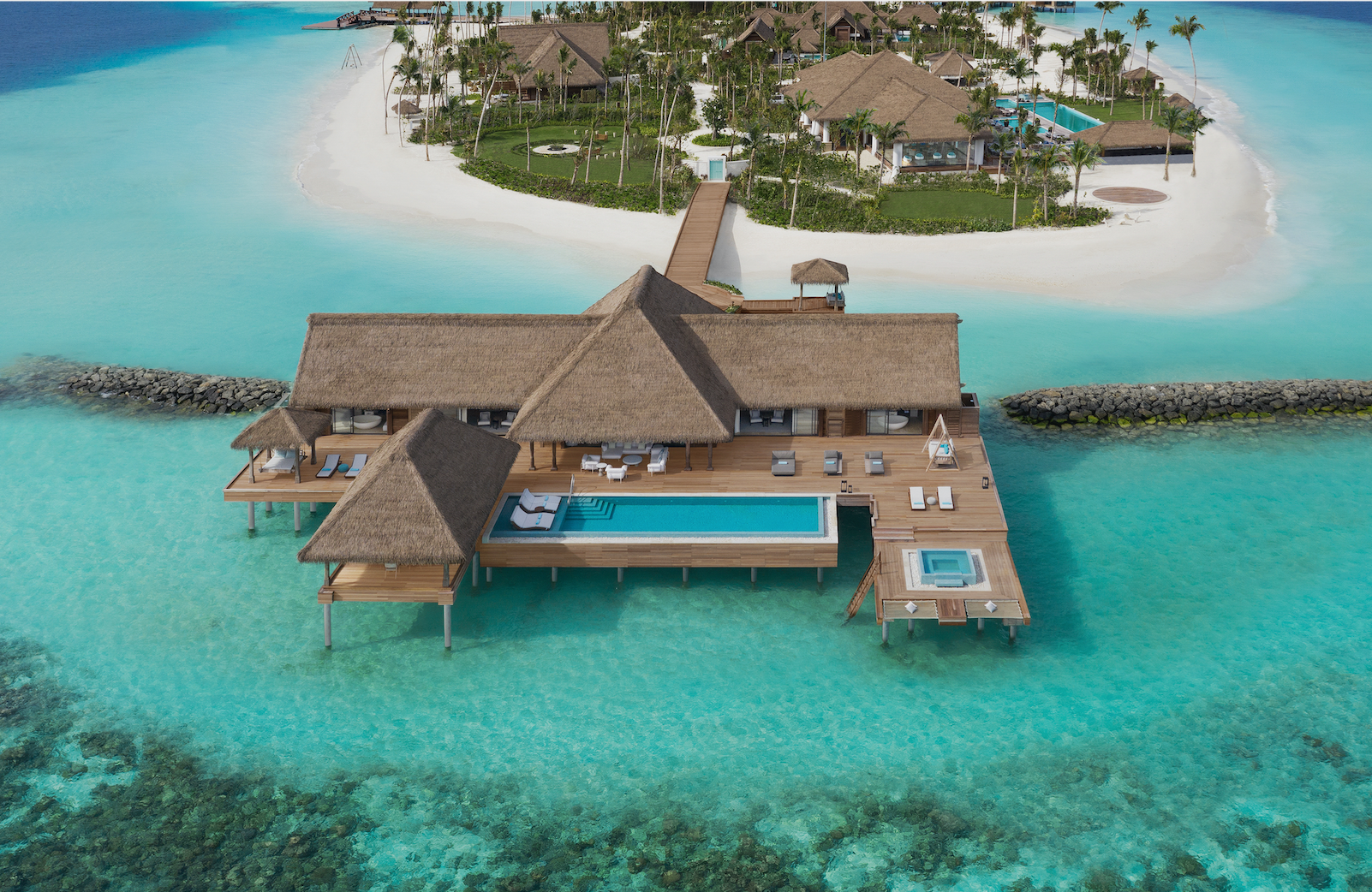Coral reefs aren’t only a beautiful locale for divers. Over 500 million people worldwide depend on them for food, income, and coastal protection (a healthy coral reef absorbs 97% of a wave’s energy). The following properties are doing their part in protecting the world’s coral reefs, which are reeling from climate change, pollution, and unsustainable fishing.
The Christopher
St. Barth
After St. Barth was ravished by hurricane Irma, the need for a healthy reef system to buffer the swells of the increasing frequency of hurricanes in the Caribbean was a focal point. The Christopher in St. Barth has partnered with Artireef to help rebuild the reef of Pointe Milou (the peninsula on which the hotel sits). In addition to creating a barrier to the shore, the reef will be more resistant to high water temperatures and pollution.
GoldenEye
Jamaica
After a series of natural and man-made disasters in the 1980s and 1990s, Jamaica lost 85% of its once-bountiful coral reefs. Chris Blackwell’s Oracabessa Foundation is restoring the coral reef as a means to bring back marine life. In recent years, through the Foundation’s efforts, the Bay saw an increase of fish presence by 1,800 percent. Because of its success, the template is being replicated in other fish sanctuaries across Jamaica.
New this year, Blackwell’s hotel GoldenEye in partnership with the Oracabessa Foundation opened a new dive shop that is open to locals as well as guests, offering coral planting opportunities, with profits going back into the foundation.
Waldorf Astoria Maldives Ithaafushi
Maldives
Coral bleaching from factors like climate change and El Niño has led to the death of 60-90% of the Maldivian reefs. As the only luxury property located both on the beach and on a coral reef, Waldorf Astoria Maldives Ithaafushi offers guests the chance to adopt a coral frame ($175 USD per frame) during their stay. The coral frames are built using broken coral fragments found on local reefs, which are then rehabilitated in the property’s coral nursery and left to grow and regain their health.
andBeyond
Mozambique
AndBeyond’s Oceans Without Borders initiative identified that a diminishing population of apex predators was threatening the coral reefs. Without grey reef sharks, smaller predators flourish, eating the algae-eating fish causing an unchecked growth of algea that killed off young corals, hurting the reefs. Apex predators like these sharks are vulnerable—they tend to grow slowly and have low rates of reproduction and are often fished, with 100 million to 270 million sharks killed globally each year. AndBeyond launched a monitoring program and currently has 15 giant trevally and seven sharks tagged to oversee movements and keep them safe.


